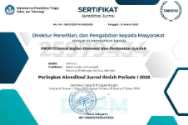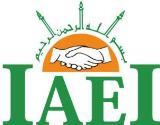THE IMPACT OF PKH ON THE WELFARE OF POOR PEOPLE IN MLANDINGAN FROM A SHARIA ECONOMIC PERSPEKTIVE
(1) * Silvi Nury Romadhoni
 (Universitas Nurul Jadid)
(Universitas Nurul Jadid) Indonesia
(2) Mohammad Alief Hidayatullah (Universitas Nurul Jadid)
Indonesia
(*) Corresponding Author
AbstractThis study aims to analyze the impact of the Family Hope Program (PKH) on improving the welfare of poor communities in Mlandingan Village from the perspective of sharia economics. The method used is descriptive qualitative. The research was conducted in Mlandingan Village, Mlandingan District, Situbondo Regency, East Java, Indonesia. Data collection was carried out through direct interviews with PKH implementers and program beneficiaries. The results indicate that PKH positively impacts the welfare of poor people through three main principles in sharia economics: ta’awun (mutual assistance) encouraging social solidarity, al-‘adl (justice) reflected in fair and targeted aid distribution, and maslahah (public benefit) seen from increased access to education, health, and basic needs. It can be concluded that PKH has helped realize the welfare of poor communities in accordance with Islamic values or sharia economics
|
Keywords
Family Hope Program, Sharia Economic Welfare, Ta’awun, Al-‘Adl, Maslahah
Full Text: PDF
Refbacks
- There are currently no refbacks.
Copyright (c) 2025 Silvi Nury Romadhoni
This work is licensed under a Creative Commons Attribution-NonCommercial-ShareAlike 4.0 International License.
Profit : Jurnal Kajian Ekonomi dan Perbankan Syariah
Published by Islamic Faculty of Nurul Jadid University, Probolinggo, East Java, Indonesia.
Published by Islamic Faculty of Nurul Jadid University, Probolinggo, East Java, Indonesia.





.jpg)



